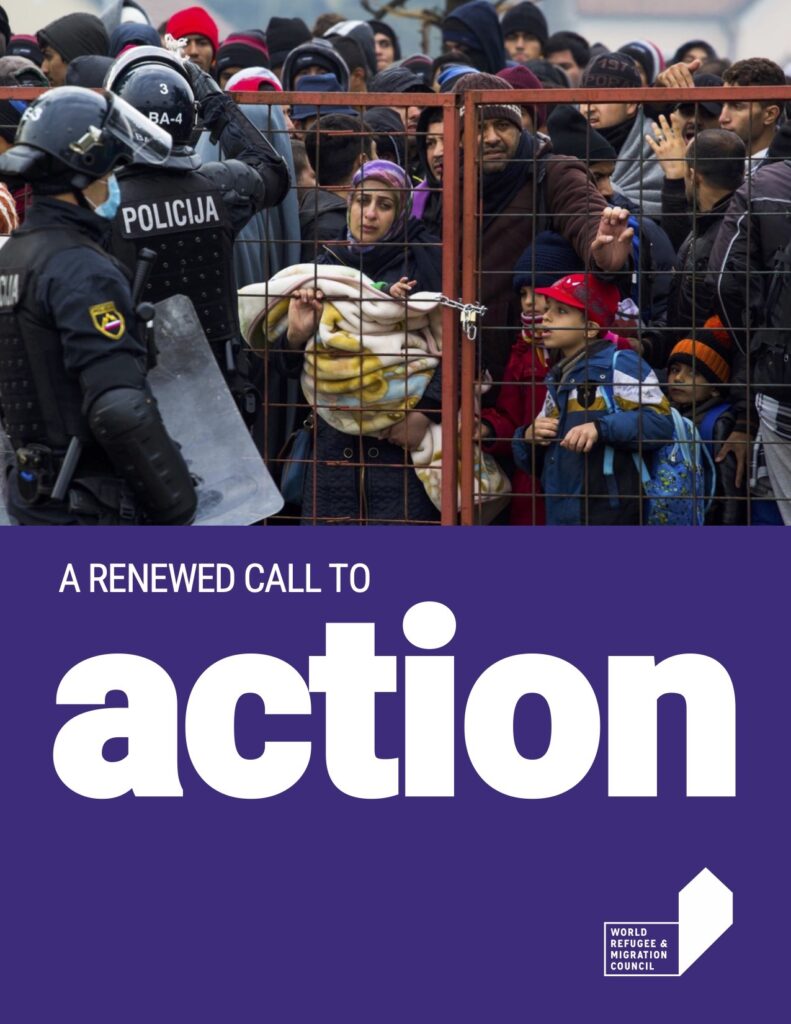
Over 30 million people have been forcibly displaced within and across borders, since the World Refugee & Migration Council released Appel á l’action : transformer le système mondial d’aide aux réfugiés, in 2019. Now, in 2022 that number exceeds 100 million — not including the millions of migrants forced to move by worsening economic conditions, famine, corruption, police brutality, and climate change. Simply put, the situation has gone from dire to disastrous.
In A Call to Action, the Council stressed that the situation the global community faced was not a refugee or displacement crisis but a political crisis — a failure of the political will and leadership needed to confront these problems. The response has been totally inadequate. Instead of capitalising on the momentum generated by the Global Compacts on Refugees, there is increasing NIMBY-ism, xenophobia, and buck-passing of responsibility by high-income countries to low- and medium-income countries in the hopes that symbolic aid packages will satisfy their international pledges.
Pressures on host countries are increasing, not diminishing. Opportunities for refugees to become self-reliant are evaporating as the global economy suffers the twin perils of stagflation. Refugee access to third-country solutions, including resettlement and legal pathways, is constrained. And because of continuing conflict, the prospects of refugees returning in “safety and dignity” to their countries of origin are dim. Meanwhile, a new driver of forced displacement — climate change — is already responsible for forcibly displacing 21.5 million people since 2008. According to some estimates, the numbers could surge to 1.2 billion by 2050 — a worsening situation that requires urgent attention.
The next United Nations Global Refugee Forum will take place only in late 2023, but the need for real action to galvanize political will is now. The World Refugee & Migration Council is issuing A Renewed Call to Action and urging governments, civil society, and the world’s leading foundations to pick up the mantle and reset the response to global displacement.
The Council calls on world leaders and governments to build on the foundations laid by the Global Compacts on Refugees and Migration by strengthening political accountability, promoting collective responsibility to manage refugee flows, adopting innovative funding and financing solutions to assist refugees and their host communities, and implementing new institutional and legal reforms to manage better refugee and migration flows.
Although our priority is getting governments to act, most governments are moving backwards, not forward. To fill the void, civil society has to mobilize now and put renewed pressure on governments to rise to the challenge of addressing the needs of the world’s most vulnerable — those who are stateless and whose numbers are disproportionately comprised of women and children. While civil society actors play a valiant, humanitarian role in supporting forcibly displaced persons by filling gaps through the provision of services that governments cannot or will not provide, they are under threat and massively under-resourced in their missions.
As a Council, we believe there is an opportunity to enlist the support of the world’s leading private foundations, which include the Carnegie Corporation of New York, the Ford Foundation, the Bill and Melinda Gates Foundation, the IKEA Foundation, the Rockefeller Brothers Fund, the MacArthur Foundation, the Open Society Foundations and the Mastercard Foundation to help convene a global gathering of key civil society and refugee leaders to address the rapidly worsening plight of the world’s forcibly displaced. Such a gathering should focus on how best to align donor priorities and mobilize substantial, additional resources to support the needs of refugees, host communities, and others who have been forcibly displaced.
We can’t simply wait another year or more to address the plight of forcibly displaced persons. While A Renewed Call to Action highlights some of the Council’s modest efforts to secure the implementation recommendation made in 2019, it importantly issues recommendations to governments, civil society, and foundations to be acted on immediately to initiate the concerted global action required to address the multiple challenges of conflict, climate change and acute hunger and starvation that millions of the world’s forcibly displaced now face.
Image: Refugees and migrants attempting to cross at the Slovenia-Croatia border are stopped by border police. (Janossy Gergely/Shutterstock) —
